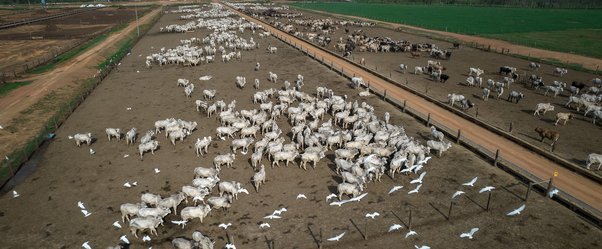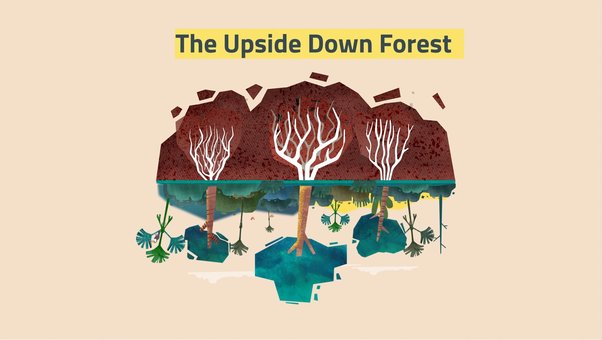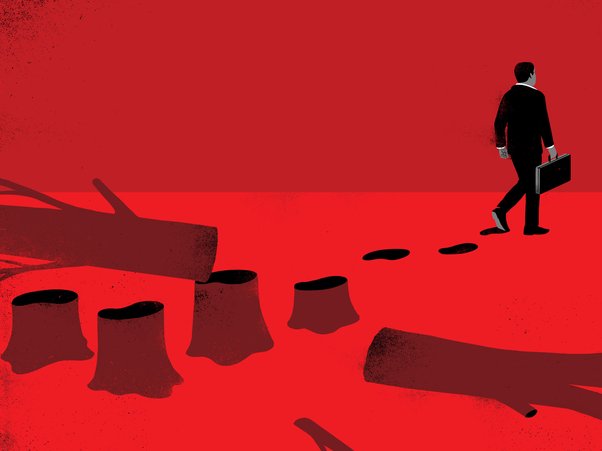New Global Witness research exposes industrial agriculture’s threat to Brazil’s jaguar habitat and calls for urgent regulatory action to end deforestation ahead of COP30
Destruction of Brazil’s tropical forests for agriculture is wiping out jaguar habitat, pushing South America's most powerful predator further towards extinction, a new Global Witness investigation reveals.
The report highlights how forest loss driven by industrial agriculture, particularly cattle ranching, is devastating jaguar habitats across Brazil – a keystone species vital to biodiversity and climate stability.
Deforestation and land use will be a key focus later this year when Brazil hosts the UN climate summit COP30, with international pressure on leaders to outline how forest loss will be halted and reversed by the agreed deadline of 2030.
The Global Witness investigation revealed:
- More than 27 million hectares of the jaguar’s original wild habitat – an area larger than the UK – has been converted to farmland in Brazil’s Pará and Mato Grosso states, according to analysis of MapBiomas land use data;
- More than five million hectares of forest in jaguar territory were lost in the same states between 2014 and 2023 – 89% of this deforestation occurring without the legally required permits; and,
- Between 2018 and 2023, 75% of farms in jaguar habitat in the supply chain of meat giant JBS in Mato Grosso and Pará had less forest cover than required by Brazil’s environmental law.
Global Witness campaigner Giulia Bondi said:
“Jaguars are a keystone species. When their territories are destroyed, the entire ecosystem suffers.
“Buying cattle from farms that are responsible for deforestation, even indirectly, violates JBS’s environmental commitments.
“We cannot forget that financial institutions are still profiting from backing JBS. We’re calling on banks and asset managers headquartered in the UK, US, China and the EU to adopt due diligence regulations to ensure their investments aren’t fuelling forest destruction.”
"Cattle laundering"
Global Witness has identified a single supplier to JBS that destroyed more than 1,200 hectares of jaguar habitat in a protected ecological area known as APA Meandros do Araguaia, despite multiple fines and embargoes from Brazilian authorities.
Records show that cattle raised on this illegally cleared land were moved to nearby properties owned by the same individuals, and later sold to farms supplying JBS slaughterhouses between 2019 and 2022 – a pattern of activity commonly known as “cattle laundering”.
JBS told Global Witness that its 75% figure “is clearly overstated” and claims only one of the farms remains in its supplier base and the other is blocked. The company has not provided documentation to refute the findings despite multiple requests. See full report for further details of JBS’s responses.
Despite JBS’s pledge to eliminate illegal deforestation from its supply chain by 2025, the company’s global Chief Sustainability Officer, Jason Weller, recently admitted the firm’s net-zero target for 2040 was “an aspiration”, not a firm commitment.
With Brazil set to host COP30 in Pará this November, Global Witness is urging governments to bring credible action plans to halt deforestation and meet their 2030 biodiversity and climate targets.
“Decision-makers in the EU and beyond must stop backpedalling on the laws needed to end forest loss by the time they turn up to COP30 in the Amazon,” Bondi added.
Global Witness is calling on policymakers to enforce strong supply chain and finance regulations to end deforestation, ensure Indigenous and forest defenders are included in climate talks, and protect the remaining habitat of critical species like the jaguar before it is too late.


